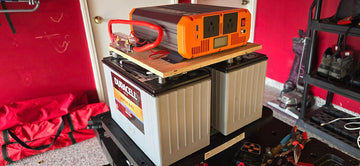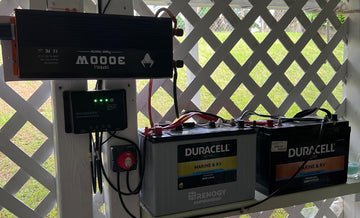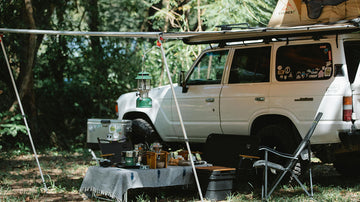Golf carts, as the right-hand man on the course, not only carry players and equipment between the green, but also an integral part of the golf culture. However, the use of traditional lead-acid batteries has limited the performance and efficiency of golf carts, especially in terms of range, weight, maintenance costs and environmental protection. With the advancement of science and technology, lithium battery, as a representative of new energy, is gradually becoming a new choice for golf cart upgrade. This article will explore the environmental, performance and economic advantages of lithium battery upgrades, providing comprehensive guidance for your golf cart's green transition.
Status of Lithium Battery Use in Golf Carts
In the United States, the use of lithium battery carts in golf courses is steadily increasing. Although the market is still dominated by lead-acid battery carts, the market share of lithium battery carts has reached about 10 to 20 per cent. Many courses have begun to adopt lithium battery carts due to the advantages of lithium batteries in terms of range, charging speed and environmental benefits.
With the continuous advancement of technology and the gradual decrease in price, it is expected that the market share of lithium battery ball carts may reach 30 per cent to 50 per cent by 2030. Major manufacturers are also responding positively to market demand by introducing a variety of lithium battery options to drive their further popularity on golf courses.
Limitations of Traditional Lead-Acid Batteries and Golf Carts
Lead-acid batteries, as the traditional power source for golf carts, are technologically mature but have many limitations
Weight:
Lead-acid batteries are typically heavy due to their own chemical properties. Using lead-acid batteries in golf carts adds to the overall weight of the vehicle, which not only affects vehicle handling, but may also increase tyre wear and energy consumption.
Range Limitations:
Lead-acid batteries have a relatively low energy density, which means they store less electrical energy for the same weight. As a result, golf carts with lead-acid batteries may have a limited range and require more frequent recharging or battery replacement.
Regular Maintenance:
Lead-acid batteries require regular maintenance, including checking electrolyte levels, cleaning battery terminals, etc. These maintenance tasks not only increase the cost of time, but may also lead to battery damage or safety hazards due to improper handling.
Replacement Costs:
Lead-acid batteries have a relatively short lifespan and their capacity decreases as the number of times they are charged increases. Therefore, batteries need to be replaced periodically, which increases the cost of use.
Long charging time:
Lead-acid batteries have a low charging efficiency and usually take a long time to complete charging. This can be inconvenient for golf carts that need to be recharged quickly.
Pollution issues:
Lead-acid batteries may pollute the environment during production and disposal. In particular, the heavy metal lead in batteries may cause long-term harm to soil and water resources if not disposed of properly.
In the United States, the management and disposal of used lead-acid batteries is regulated by a number of statutes; learn about U.S. state battery recycling laws
Benefits of Upgrading Golf Cart Batteries to Lithium Batteries
In contrast, lithium batteries are ideal for golf cart upgrades due to their light weight, long range, fast charging, easy maintenance and environmental friendliness.
The high energy density and light weight of lithium batteries can significantly improve vehicle performance, such as faster acceleration and better hill climbing ability. At the same time, a single charge travels a longer distance, reducing the hassle of frequent charging. Supports fast charging technology, which greatly shortens charging time and improves usage efficiency. Li-ion batteries require almost no daily maintenance, reducing the cost of use. Most importantly, lithium battery materials can be recycled, reducing environmental pollution and meeting the requirements of sustainable development.
Upgrade Steps and Precautions
To upgrade your golf cart to lithium batteries, you need to follow the steps and precautions below:
- Choose the right lithium battery: Consider the voltage, capacity, size and other factors to ensure compatibility with the golf cart. It is recommended to consult professionals and choose lithium batteries of well-known brands and reliable quality.
- Preparation before installation: Disconnect the power supply to ensure a safe operating environment. Prepare the required tools and materials, such as screwdrivers, insulating tape, etc.
- Professional installation: As the installation of lithium battery involves circuit connection, battery fixing and other key aspects, it is recommended to be installed by a professional technician to avoid battery damage or safety hazards.
- Adjustment of controller: Adjust the vehicle controller according to the lithium battery characteristics to ensure optimal performance output. This may require some technical knowledge, and it is recommended to work with manufacturers or professional organisations.
- Testing and debugging: Conduct functional tests after completing the installation, including charging, discharging, driving, etc., to ensure that everything works properly. If there is any abnormality, contact the installer in time to deal with it.
Related reading: how to choose the best golf cart battery
Maintenance and use after upgrade
Upgraded lithium batteries require regular maintenance:
- Regularly check the battery status: regularly check the connection and appearance of the battery to ensure there is no aging or damage.
- Reasonable charging schedule: Avoid over-discharging and ensure that the lithium battery is charged within the appropriate range.
- Precautions for use: Follow the guidelines provided in the instruction manual to keep the battery and electrical system in optimal condition.
Golf Cart Lithium Battery Recommendation
12V 200Ah LiFePO4 Lithium Battery

Product Features:
1. Long life and high performance
- Lifespan: LiFePO4 batteries last 8 to 10 times longer than traditional lead-acid batteries, achieving 2,000 to 5,000 charge cycles compared to 300 to 500 for lead-acid batteries.
- Usable capacity: LiFePO4 batteries have twice the usable capacity of lead-acid batteries, and their higher energy density reduces their weight by about 30 per cent.
2. Ease of maintenance
- Built-in Battery Management System (BMS): The built-in BMS effectively protects the battery from overcharging, over-discharging, over-current and short-circuiting, and has an excellent self-discharge rate.
- High temperature cut-off function: The system can automatically stop charging when the temperature exceeds 122°F (50°C), ensuring battery safety.
- No memory effect: Li-ion batteries hold their charge better when not in use and do not lose capacity due to previous discharge state.
3. Capacity Expansion Capability
- Series and parallel connection: Lithium batteries can be connected in series and parallel to achieve greater capacity and voltage. The maximum series connection can support up to four identical batteries (up to 48V), and up to 800AH can be connected in parallel.
- Flexible Configuration: Simultaneous series and parallel connections can be made to achieve a combination of 48V and 800AH. Note that when connecting in parallel or in series, make sure to use batteries of the same voltage and capacity that were bought within six months.
How do I dispose of my old battery after upgrading
After upgrading your golf cart, it is critical that you dispose of your old batteries properly. To ensure the safety of the environment and people, it is recommended that you take the following steps:
- Contact a specialist recycling facility: Many cities have dedicated battery recycling points or bins, and these facilities are often set up by local authorities or environmental organisations. You can contact your local environmental organisation or battery manufacturer to find out how old batteries are recycled and the nearest recycling location.
- Avoid throwing them away: Used batteries contain heavy metals and other hazardous substances, and throwing them away may cause serious pollution to the environment. Therefore, please be sure to give your old batteries to a professional recycling organisation for disposal.
- Storage precautions: If you can't find a recycling point or professional treatment organisation for the time being, you can store the old batteries safely. When storing, choose a dry, cool and well-ventilated place and avoid mixing with metals, oxidisers and other items. Also, make sure that the batteries are not physically damaged to avoid any safety risks.
By following these tips, you will not only be protecting the environment, but also contributing to the safety of your community.
Are lithium batteries suitable for all types of golf carts?
Lithium batteries are widely used in golf carts due to their high energy density, long life and low maintenance costs. However, not all types of golf carts are suitable for the use of lithium batteries as different makes and models of golf carts may have different electrical systems and battery interfaces. During the upgrade process, it is necessary to ensure that the selected lithium battery is compatible with the electrical system of the golf cart, including voltage, current and interface. In addition, factors such as the size, weight and mounting location of the lithium battery need to be considered to ensure that it can be installed and used properly.
How to judge whether the lithium battery is working properly?
To determine whether the lithium battery is working properly can be through the following methods:
- Observe the appearance: the appearance of a normal lithium battery should usually be complete, without obvious deformation and damage. If you find the appearance of lithium battery has obvious deformation, cracks or discolouration, etc., it is recommended to stop using it immediately.
- Test voltage: Normal lithium battery voltage should fluctuate within a certain range. If the test finds that the lithium battery voltage is too low or too high, it may indicate a problem with the lithium battery, which requires further inspection and treatment.
- Check the range time and charging cycle: The range time and charging cycle of the lithium battery is an important indicator to judge its health. If it is found that the endurance time of the lithium battery is significantly shortened or the charging cycle is significantly increased, it may indicate that the lithium battery has been aging or has other problems, and needs to be replaced or repaired.
Conclusion
Upgrading your golf cart to lithium batteries is certainly a worthwhile investment. Not only will it significantly enhance your golfing experience, but it will also reduce long-term operating costs. Whether you are looking for convenience, performance, or environmental friendliness, lithium batteries are an ideal solution. We encourage you to consider upgrading and enjoy a better golf experience!

















